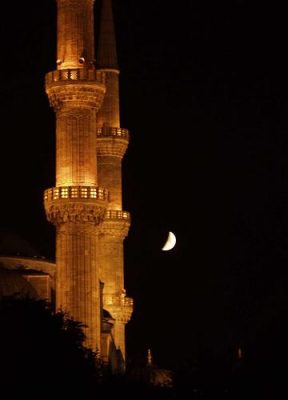Nakoula Basseley Nakoula is a convicted conman. He knows almost nothing about Islam and even less about filmmaking. And yet, thanks to the power of the Internet and the tense relationship between the West and Islam, Nakoula has generated a major international scandal with Innocence of Muslims, his lowbrow, low-budget movie.
The YouTube clip, which produced protests in Libya that led to the deaths of the American ambassador and three embassy staff members, accomplished exactly what Naboula wanted. He shouted “fire” inside a crowded movie theater and watched the turmoil that resulted.
Nakoula doesn’t speak for anyone other than himself and a few fellow Islamophobes. At the opening of the film this summer in Hollywood, fewer than a dozen people attended. Given this turnout and the suspect credentials of the director, why has anyone in the Muslim world taken this movie seriously? More precisely, why have protestors in Libya, Egypt, Pakistan, and elsewhere equated his views with those of Washington or public opinion in the West?
Nakoula’s distortions of Islam are nothing new. You can find the same incendiary material in Robert Spencer’s book The Truth about Mohammed or in Pamela Geller’s notorious website Atlas Shrugs. Previous controversies prepared the ground: the cartoon series about Mohammed in a Danish newspaper in 2005, Florida pastor Terry Jones’ threats to put the Qur’an on trial and then burn it, the rhetoric around the so-called Ground Zero mosque in New York City. It’s no surprise that people in the Islamic world believe that Westerners can’t wait to say bad things about their religion.
But the deeper reason for the heated response from the Muslim world is not so much Western rhetoric but Western policy. The U.S. government continues to wage war in predominantly Muslim countries — Afghanistan, Pakistan, and Somalia. Yes, Washington is also allied with Muslim governments. But these governments are frequently corrupt (Afghanistan), authoritarian (Saudi Arabia), fiercely resistant to reform (Bahrain), or all three.

Rogiro/Flickr
Then there are the actions of U.S. troops abroad. They burn Qur’ans (however inadvertently). They urinate on corpses (no matter the disciplining of the soldiers involved). And they generally show little respect for local customs (during, for instance, night raids in Afghanistan).
More recently, a new book by journalist Kurt Eichenwald has revealed that President George W. Bush viewed the war on terror as an apocalyptic battle against the foes of Christians. The attacks against the Taliban and Saddam Hussein were not, in other words, simply discrete battles against political forces. Bush believed that the West was fighting a modern crusade against an entire religion, Islam.
Of course, George W. Bush is no longer president. The U.S. military is engaged in a “Pacific pivot” to focus on China. And fanatics like Nakoula Basseley Nakoula and Pamela Geller have zero influence on current policymakers in Washington.
But mistaking the part for the whole is not a disease specific to the Muslim world. To “prove” that all Muslims are inherently violent, Islamophobes point to the 9-11 hijackers, the Taliban extremists, and al-Shabaab fanatics in Somalia. This is Islam, they assert. But in fact these are the fringes of Islam, just as Nakoula Basseley Nakoula is the fringe of America.
The more these two mirror-image fringes incite each other to violence, the more attention they get. They respond to each other so vehemently because they need each other. If they shout “fire” enough times in a crowded movie theater, the heated confusion indeed produces a real conflagration.
We should never let the Crusaders and the jihadis claim the center of attention. The West and Islam, which are actually two inter-related civilizations rather than opposed entities, must join hands and form a circle to keep these extremists where they belong: on the fringes.
